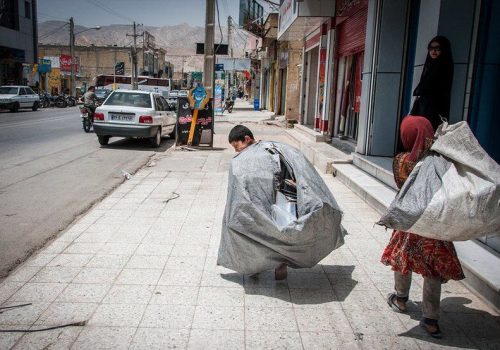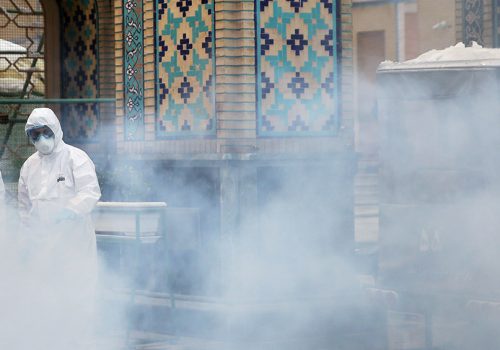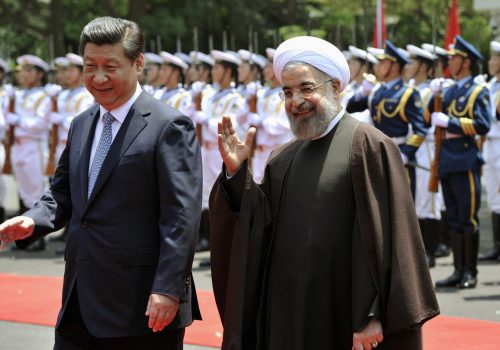Iran tries another lockdown as coronavirus cases soar
Faced with a new surge in coronavirus cases, Iranian authorities have ordered hundreds of cities across the country to obey a variety of stringent new restrictions starting from November 21.
150 cities and towns have been categorized as “red regions”, including the capital Tehran, where most workplaces and businesses will close for two weeks and only a third of the work force will be permitted to show up at entities deemed to be providing essential services. Commuting into and out of these cities is forbidden from 9 pm in the evening to 4 am. The driver of any vehicle that enters a red region will face a fine of 1 million tomans ($38, as $1 equals 26,000 tomans at the time of writing this). Only banks, bakeries, hospitals, and grocery stores are allowed to open.
An additional 150 cities and towns have been categorized as “orange regions”, in which half the workforce is allowed to come to their jobs. Others who enter these cities face fines of 500,000 tomans ($19). A further 155 cities and towns are categorized as “yellow regions”, where two-thirds of employees can go to work and more offices and businesses can open.
The new lockdowns and restrictions, which are similar to measures put in place when the virus first exploded last spring, reflect a skyrocketing toll of COVID-19 cases, which have overloaded and overburdened hospitals. The number of patients diagnosed with the virus reached 13,352 cases in one day on November 17, causing forty-eight people to die. Nearly six thousand patients are in intensive care units in critical condition.
So far, approximately half a million Iranians have been diagnosed with COVID-19 and more than forty thousand have died according to official figures, a staggering number in a country of about eighty million people—the largest in the Middle East. Actual numbers are believed to be even higher.
Iran’s minister of health, Saeed Namaki, said the country is experiencing a “corona explosion.” Without drastic measures, he warned that fatalities would rise to four digit numbers.
President Hassan Rouhani has promised to provide aid packages for families in need due to the lockdowns. The government has also stated that it will cover all medical expenses related to coronavirus treatments for those who lack medical insurance.
Health ministry officials and members of a coronavirus task force have blamed the new surge on Iranians becoming lax about taking preventive measures, such as wearing masks and disposable gloves, avoiding large gatherings and travel, and maintaining social distancing.
Saadi, a dentist, told this author that she became infected with COVID-19 even though she wore a mask and shield while working on patients. She said patients often come in with masks but remove them briefly and a sudden sneeze can spread the virus in the environment where it will linger. Saadi explained that her husband and children are now infected as well. Many people have avoided visiting dentists even for urgent care in order to avoid catching the coronavirus.
While the news has been alarming, Iranians have been closely following reports of major advances toward developing vaccines. In Iran, there are several vaccine candidates that have been developed and are in the process of further testing. Factories that could rapidly manufacture the vaccines have been identified to the World Health Organization. First Vice President Eshaq Jahangiri also noted that a new version of a corona diagnostic kit that takes only twenty minutes to give results and is inexpensive has been produced in Iran.
Pfizer announced recently that its candidate vaccine has been 90 percent successful and is awaiting approval from the US Food and Drug Administration for urgent use. Moderna has also announced that it has a vaccine in the final phases of testing with an impressive 95 percent success rate. However, it is not clear whether these vaccines will be available in Iran, given likely priority on distributing them to Americans and also the impact of economic sanctions on trade with Iran. While humanitarian-related goods and medicine are exempt from sanctions, there have been hurdles. One possible goodwill gesture by the incoming Joe Biden administration would be to allocate doses of the new Pfizer vaccine to Iranians.
Tahereh Hadian-Jazy is a freelance writer in Iran. She holds a Masters degree in modern Middle Eastern studies from Oxford University and has been accepted for a PhD at the University of St. Andrews.
Image: Iranian People wearing protective masks are pictured at a bus, amid the outbreak of the coronavirus disease (COVID-19), in Tehran, Iran November 11, 2020. Majid Asgaripour/WANA (West Asia News Agency) via REUTERS


